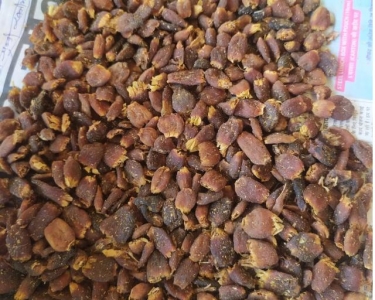Live animals
Couldn't find the product you want?
Fill out this form to request the product.
Products You May Like
Export from Guadeloupe
The economy of Guadeloupe is based on four main pillars which are tourism, agriculture, light industry and services. At present, tourism plays a key role in the country's economy, as an increasingly large number of cruise ships visit the islands.
Agriculture accounts for about 15%. The main cultivated crops are bananas (which supply around 50% of export earnings), cocoa, eggplants, christophines, pomegranates, jackfruit, prunecafé, as well as many varieties of flowers.
Light industry includes the production of sugar, rum, solar energy and other industrial products. Other industrial activities include food processing, cement and brick manufacture, mineral water bottling, beverage making, chemical making, textile manufacture and electronics assembly.
The main exports of Guadeloupe are bananas, sugar and rum. The primary export partners of the country are France, Martinique and the US.
Import to Guadeloupe
Guadeloupe manifests a modern economy that is progressively transforming. The key economic sectors of the country are agriculture (15 % of the GDP), industry (17%) and services (including tourism; 68%). Businesses are at the basis of economic development of the island, and also contribute to the enrichment of the population.
Guadeloupe is a French overseas territory and it is dependent on subsidies and imports from the mainland France which contribute to the island's economy. Guadeloupe also receives many food imports, from France and from other countries. Most manufactured goods and fuel are also imported.
Guadeloupe's major imports include food products, fuel, cars, clothes, other consumer goods and construction materials. The country's main import partners are France, Germany, US, Japan and Netherlands Antilles.
Check Out Export Portal: A Site That Lets You Export Live Animals
If you are looking to buy and export animals, then you came to the right place! Export Portal's Live Animals Department is an online marketplace for sellers and buyers of any livestock. We work to contribute to the live export industry, which brings many economic advantages and other benefits to countries that rely heavily on livestock imports. In fact, in just Australia alone, this industry contributes roughly $1.8 billion to the country's GDP each year. Moreover, it also ensures food security while helping people meet their protein needs as well.
Finding the Right Animal
We feature a wide range of pigs, cows, sheep, goats, horses, rabbits and hares, turkeys, bees, and fish for sale. An increasing number of American, Australian, German, South African, Argentinian, and Italian farmers and companies are advertising their livestock with Export Portal, portraying just how effective and helpful our site is.
To help customers make more informed purchasing decisions, our site lets users narrow down their searches by the age, breed, and sex of the animal. If you are feeling hesitant to shop on our site and want more detailed information, make sure to check out our seller ratings and reviews, which are written by our buyers and customers. We also collaborate with hundreds of trusted international shipping companies that arrange the transport of all kinds of animals and birds to any country in the world.
Online Shopping is More Simple with Export Portal
Export Portal is an ideal site for everyone who is an avid online shopper. Our convenient options make it easy to find and buy whatever you are looking for. Our seller network from all over the world has everything you need, and our customer support team will make sure you can find it. Our wide assortment of products will be sure to provide you with the best shopping experience. Make sure to check out our site and items today!
Customs requirements of Guadeloupe
Guadeloupe Customs Contacts
Direction régionale des douanes de Guadeloupe
Email: dr-guadeloupe@douane.finances.gouv.fr
Address: Allée Maurice Micaux, 97100 Basse Terre
Tel. 0590 99 45 30
Guadeloupe is an oversee territory of France situated in the Leeward Islands, in the Caribbean. The island, like the other overseas departments, is an integral part of France, and as a result a part of the European Union and the Eurozone. However, Guadeloupe is not part of the Schengen Area.
Import tariffs
Being a French territory, Guadeloupe’s import policy follows the European Union regulations. Imports from non-EU countries are subjected to a Community Integrated Tariff (TARIC) system, and the tariff schedule is based on the Harmonized Commodity Description and Coding System. Import duties are calculated ad valorem basis. Products from African Caribbean and Pacific countries are exempted from general Customs Tax.
Several taxes are applied: General Customs Tax, the Octroi de Mer Tax (OM), Additional Tax to the Octroi de Mer Tax (DAOM) and Value Added Taxes.
The value-added tax is applied on the “tax excluded price”. All imports, except cigarettes, have an “overseas tax” of between 5 % and 25% of duty value.VAT must be added to the price of all goods and services sold.
Labelling and marking requirements
Guadeloupe’s regulations on labels comply with those of the European Union. The requirements are the following:
- labels should be in French, but may include other languages as well;
- the information on label must be clear and non-promotional;
- labels should properly identified the product;
- they should specify the ingredients, starting with the one with the highest content;
- labels should state the net quantity of product (in metric units);
- they should contain the product’s date of manufacture; recommended ‘best used before’ date; and expiry date;
- labels should include instructions on usage and care;
- they should state the name of the producer, manufacturer or distributor;
- labels should indicate registered brand names and trademarks;
- they should state the country of origin and the lot number;
- labels should inform of any special sales conditions or limitations of the product.
Documents for import
The following documents are required by the customs:
- Bill of lading or Airway bill
- Commercial invoice – written in French or carrying a translation
- Certificate of origin
- EUR 1 circulation certificate (for exemption of certain taxes as an ACP member)
- Phytosanitary, fumigation or disinfection, zoosanitary certificate where relevant.
As part of the European Union, imports from third countries (non-European Union countries) are subject to regulation. A limited number of products considered to be sensitive may require a specific import license.
Sources:
http://www.ceintelligence.com/content_manager/documents/download/642
http://www.frenchcaribbean.com/Guadeloupe/Helpful-Info/Entry-Customs/





